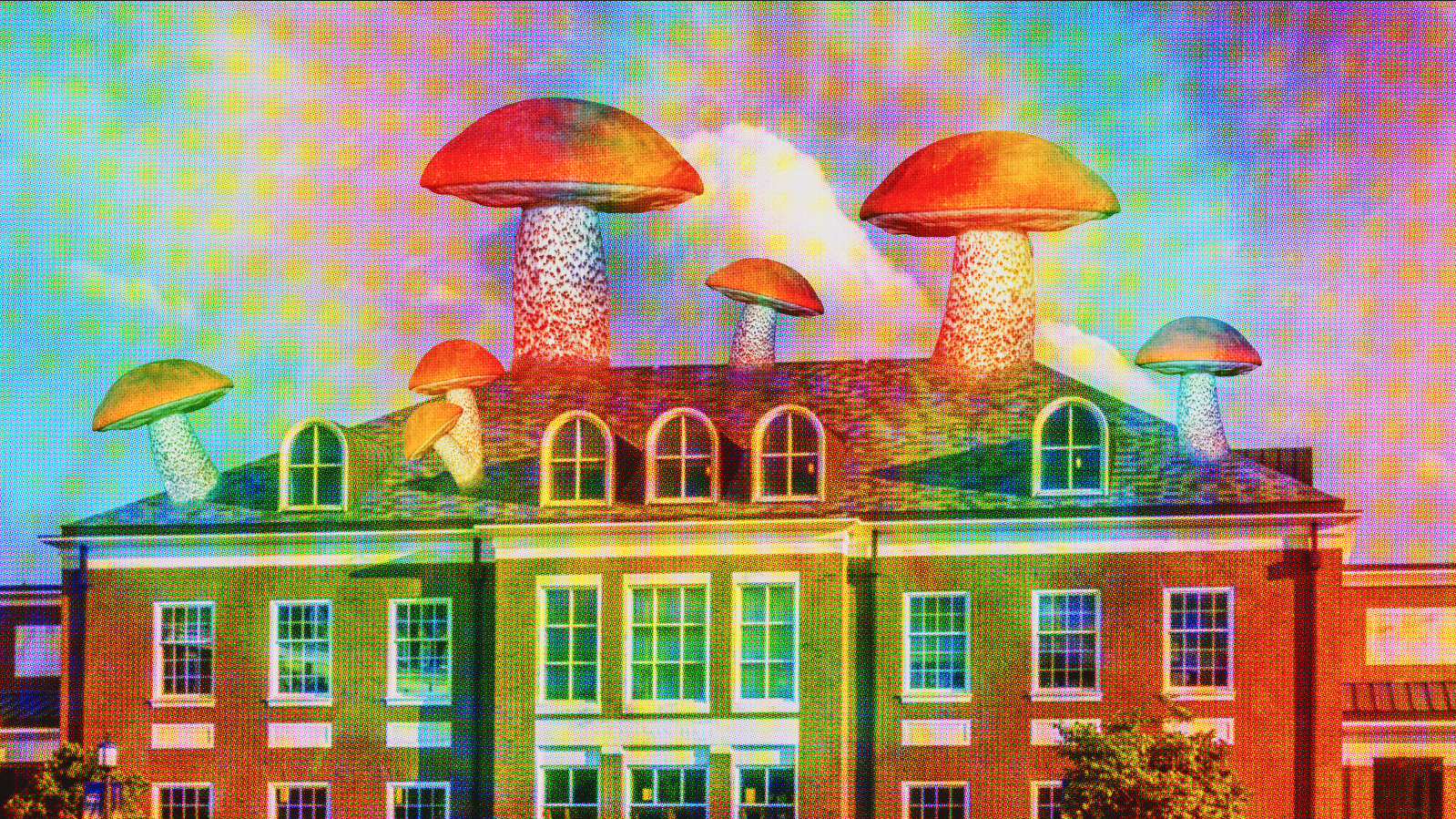The U.S. Is Now Home to the Biggest Shroom Research Center in the World

Credit to Author: Alex Norcia| Date: Wed, 04 Sep 2019 20:34:12 +0000
It only took 20 years.
On Wednesday, Roland Griffiths, who has been researching the health effects of psilocybin—the psychoactive ingredient in magic mushrooms—since 2000, announced the formation of the Center for Psychedelic and Consciousness Research at Johns Hopkins University. It’s believed to be the first facility of its kind in the United States, and according to the university, potentially the largest such academic setting in the world. It will be, Griffiths promised at a press conference in which he sounded simultaneously relieved, excited, and exasperated, “completely new and more of the same.”
What Griffiths means is that he and his team—at least seven experts in psychiatry and behavioral sciences—will continue looking at how certain psychedelics might help people suffering from post-traumatic stress disorder, nicotine dependency, opioid addiction, alcoholism, anorexia, Alzheimer’s, and even Lyme disease, among other conditions. But in the nearly two decades Hopkins researchers have been at it, academia and the feds in the form of the Food and Drug Administration (FDA) have been slowly warming up to the medical potential of these drugs. Last October, the FDA granted psilocybin “breakthrough therapy” status. Researchers like Griffiths lauded the decision as a significant step, one that potentially makes it much easier for them to study and perform clinical trials using the drug.
Now, they’re fast-tracking the process with an injection of cash.
Up until this point, psilocybin and other psychedelics have been incredibly difficult to access for research purposes. That’s because the Drug Enforcement Agency (DEA) classifies them as Schedule I drugs—like cocaine and heroin—with “no currently accepted medical use and a high potential for abuse.” The cruel drug war irony, of course, is that to reschedule the drug (Hopkins researchers have been calling for it to drop to Schedule IV), more clinical trials have to be performed. That requires funds.
This is all sort of tautologically confusing, endlessly bureaucratic, and seemingly paradoxical—with loopholes here, and exemptions there. But it’s safe to assume the grand opening of an official academic facility in Baltimore is an explicit acknowledgement by relatively high-status people that psychedelics are inching toward the American norm. This year, psilocybin was effectively decriminalized in both Denver and Oakland, and there’s also a full-blown desire to legalize it in some form in Oregon, alongside national lobbying efforts to propel it further into the public consciousness.
“This is clearly becoming more mainstream,” said Mark Haden, executive director of the Multidisciplinary Association for Psychedelic Studies (MAPS) Canada, a nonprofit that advocates for psychedelic research and education. “There are many inadequate mental-health and addiction treatments today, and we need new medications to come down the pipe. This is how it’s done. It’s a well overdue initiative.”
Due to a systemic lack of available funding, the Center for Psychedelic and Consciousness Research is coming to life largely thanks to $17 million in private donations. Theirs is a strange and growing group of givers, which in this case consists of the Steven and Alexandra Cohen Foundation—whose causes range from children’s education to veterans’ care—as well as a popular podcaster and tech bro (Tim Ferris), a co-founder of WordPress (Matt Mullenweg), the guy who created TOMS shoes (Blake Mycoskie), and a run-of-the-mill hedgefunder (Craig Nerenberg). There’s nothing that helps build public support for once controversial or fringe ideas, substances, or individuals in America like lots and lots of money. Which is to say this eclectic gang of charitable shroom supporters is as sure a sign as any that the stigma around psychedelic drugs is waning.
“The center’s establishment reflects a new era of research in therapeutics and the mind through studying this unique and remarkable class of pharmacological compounds,” Griffiths said, adding, “In addition to studies on new therapeutics, [they] plan to investigate creativity and the well-being in healthy volunteers that [they] hope will open up new ways to support human thriving.”
Sign up for our newsletter to get the best of VICE delivered to your inbox daily.
Follow Alex Norcia on Twitter.
This article originally appeared on VICE US.